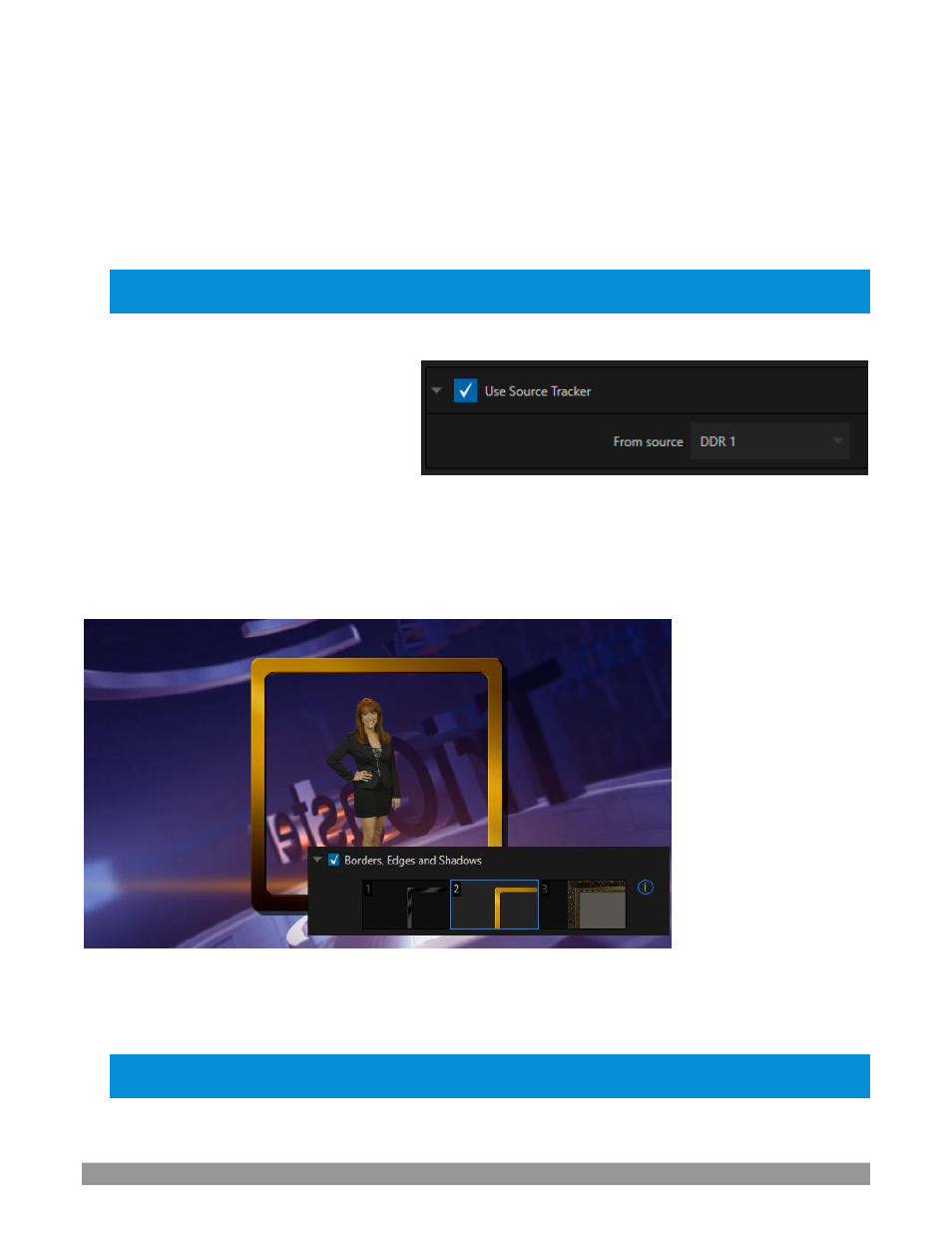NewTek TriCaster TC1 (2 RU) User Manual
Page 114

P a g e | 98
We will discuss the powerful
Comp
system a bit later (Section 9.9
), but we’ll mention it in passing here to
highlight the
Apply with Comp
switch provided in the
Position
control group. At the lowest level,
Comps
can
be thought of as presets that store complete
Switcher
or
M/E
setups.
By default, the settings stored in a
Comp
include the
Position
,
Crop
and visibility state for each
DSK
or
KEY
layer. Disable the
Apply with Comp
feature if you want to exclude a given DSK/KEY channel from Comp
control, handling it manually instead.
Hint: You might find this useful, for example, to ensure that a station ID ‘bug’ shown over output is n
ot
accidentally removed by application of a Comp.
U
SE
S
OURCE
T
RACKER
We discussed the video
Tracker
back in
Section 8.1.4). The
Use Source Tracker
feature lets you assign motion data output
from the
Tracker
for any video source to
modify the position of the current
DSK
or
KEY
layer by selecting it in this menu.
Position
settings enabled above in the
DSK/KEY
tab continue in force but will be
applied relative to
Tracker
output. (For example,
X
and
Y Position
settings entered in the upper part of the
panel result in an offset from the co-ordinates supplied by the
Tracker
.)
B
ORDERS
,
E
DGES AND SHADOWS
FIGURE 108
The
Borders, Edges and Shadows group
also provides each
DSK
,
KEY
and
M/E
layer with three quick access
Border
preset slots (Figure 108).
Hint: Since these are per-layer Position effects and can be controlled
–
even animated
–
by Comps, you can use
the Borders feature to create custom multi-box compositions in M/Es.
FIGURE 107
